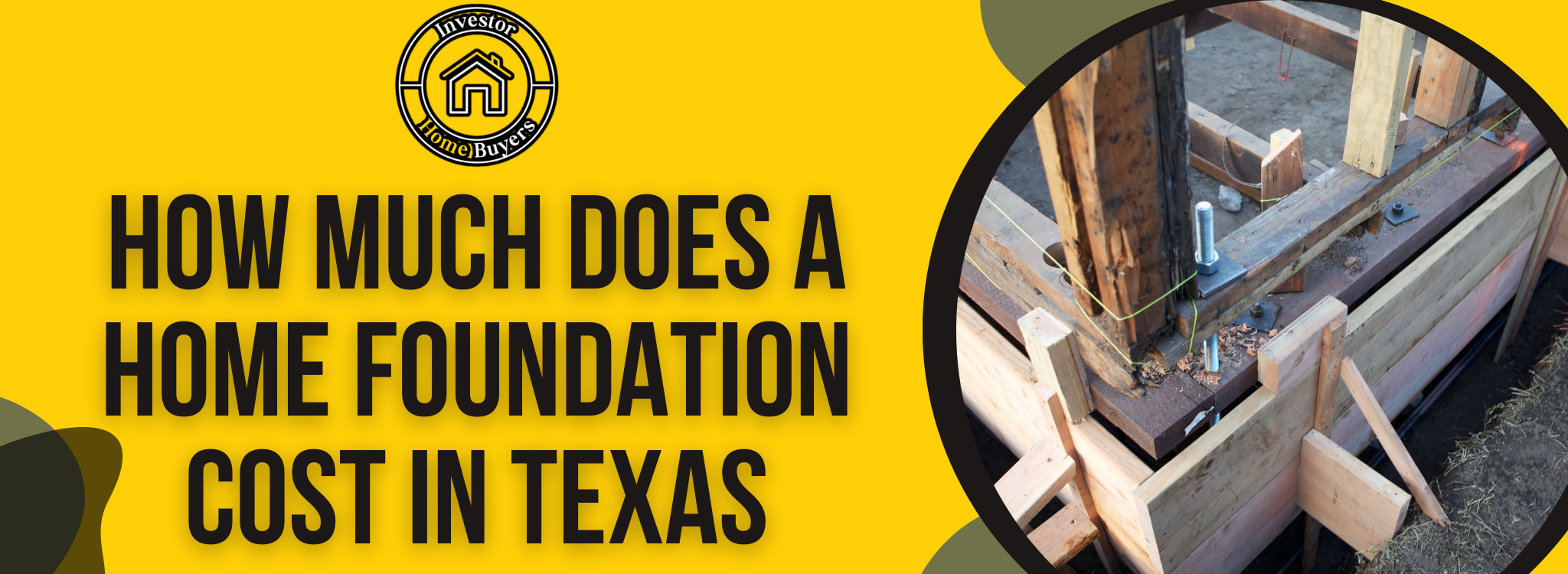
What Influences the Cost of a Home Foundation in Texas?
How Do Soil Conditions Affect Foundation Pricing?
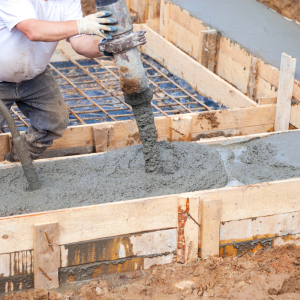
Soil conditions are a big factor in foundation costs in Texas. The soil varies across the state. Some areas have clay-rich soil that changes with moisture. This can cause problems if poorly managed, so soil testing is important. In places where the soil shifts a lot, extra work may be needed, which raises costs.
What Role Does Foundation Type Play in Overall Cost?
The foundation type you choose affects your costs. Common types are slab, pier, beam, and concrete foundations. A monolithic slab is usually the cheapest because it uses one concrete pour. However, a pier and beam foundation is more expensive but better for shifting soil. Compare these foundation types to understand their cost differences.
Are Seasonal Factors Important in Cost Consideration?
Seasonal factors also impact foundation costs in Texas. The state’s weather can change the timing and process of building. For example, building during dry seasons can help avoid rain delays. Planning construction during less busy times might lower labor costs. Knowing how Texas weather affects foundation pricing can help you save money.
Different Types of Home Foundations in Texas
What Are the Characteristics of a Slab Foundation?
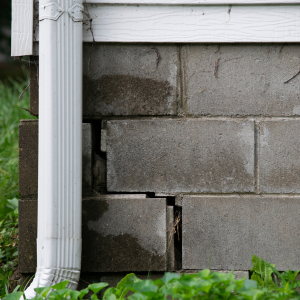
A slab foundation, a concrete slab, is a popular choice for homes in Texas. This type of foundation is made by pouring concrete directly onto the ground. Here are some important features:
- Construction: It involves little digging, making it less expensive than other foundations.
- Foundation Costs: The cost per square foot in Texas for a slab foundation is usually lower because the construction is simpler.
- Soil Conditions: Best for areas with stable soil. Expansive soils can cause cracks or shifts.
- Stem Wall Foundation: Sometimes used with slab foundations for added stability.
Slab foundations are affordable and easy to install, which makes them favored by many homebuilders in Texas.
How Does a Pier and Beam Foundation Compare?
Pier and beam foundations offer a different setup than slab foundations. They use piers, often made from cinder blocks, to support wooden beams.
- Piers: These support the home’s weight evenly.
- Beam: Wooden beams rest on these piers, creating a crawl space under the house.
- Crawl Space: This area allows for easy inspection and repair of the foundation.
- Leveling Foundation Cost: Leveling this type of foundation might be more costly in Texas due to its structure.
Pier and beam foundations are good for areas prone to flooding or where the soil requires elevation.
Are There Benefits to Choosing a Crawl Space Foundation?
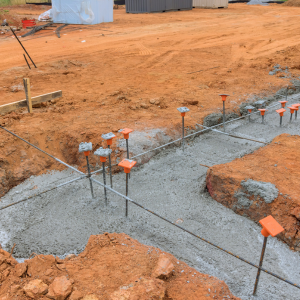
Crawl space foundations lift the home above ground, leaving space between the earth and the house. Here are some benefits:
- Ventilation: Better air circulation helps reduce moisture buildup.
- Drainage: Proper drainage systems prevent water from collecting in the crawl space.
- Moisture Issues: Keeps the home raised to handle potential moisture problems.
- Energy Efficiency: Adding insulation here can improve energy efficiency.
- Foundation Repair: Easier access for repairs and maintenance than other types.
- Structural Foundation Cost: Though initial costs may vary, long-term savings, especially on energy, can make it worth it in Texas.
Choosing a crawl space foundation can lead to a durable and more functional home.
Estimating Home Foundation Repair Costs
What Are the Indications That Your Foundation Needs Repair?
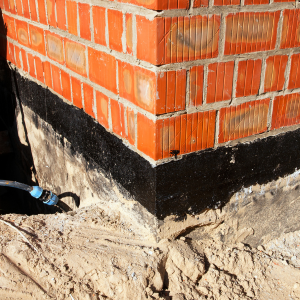
There are several signs that your home’s foundation might need repair:
- Cracks in Walls or Floors: Small cracks are usually not a big deal. However, large cracks can mean serious structural issues.
- Bowing or Leaning Walls: This can happen because of unstable soil. It’s something you should fix right away.
- Sinking or Uneven Floors: If your floor slopes or pulls away from the walls, it could be a sign of foundation problems.
- Sticking Windows and Doors: The foundation might shift if windows and doors are hard to open or close.
- Water Damage or Moisture: Too much moisture around the foundation can weaken it and lead to repairs.
Regular foundation inspections can catch these problems early. Fixing them quickly helps protect your home and might save you money on repairs.
Can You Provide an Average Range of Repair Services in Texas?
Knowing the average foundation repair cost in Texas can help you plan. Here’s a look at what to expect:
- Average Costs: In Texas, foundation repair services usually cost between $3,000 and $10,000. This depends on how bad the damage is.
- Typical Expenses: Small repairs like fixing tiny cracks might start at $500. Bigger jobs like underpinning or replacing foundation parts could cost more, maybe over $15,000.
- Factors Affecting Costs: The type of foundation, the local soil, and the specific repairs needed all affect the price. For accurate estimates, talk to a local professional in Texas.
Understanding these costs helps you budget for any repairs your home might need.
What Specific Repairs Could Impact Overall Cost?
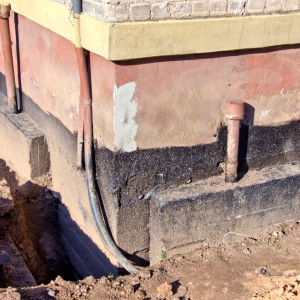
Different foundation repairs can change the project’s cost. Here are some you might need:
- Underpinning strengthens the foundation by making it deeper or wider, especially if the soil is unstable.
- Waterproofing: Protecting the foundation from water might involve adding drainage solutions or using water barriers.
- Excavation and Leveling: Making the foundation level again or changing the landscape can require a lot of digging, increasing costs.
- Foundation Stabilization and Reinforcement: Adding piers or hydraulic jacks to support the structure requires special skills and materials, affecting costs.
- Structural Repairs: Fixing major structural issues, such as cracks or bowing walls, can be costly due to the complexity and labor involved.
Knowing what repairs you might need can help you plan for costs and keep your home safe. For detailed costs, it’s best to talk to a foundation repair expert in Texas.
Selecting the Right Contractor for Foundation Work
What Essential Qualities Should You Look for in a Contractor?
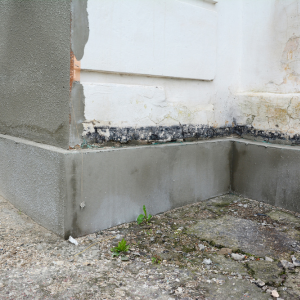
When choosing a contractor for foundation repair, look for these key traits:
- Reputable and Experienced: Choose a contractor known for quality work and extensive experience, especially with foundation repair services in Texas.
- Insurance and Warranty: Make sure they offer solid insurance and warranties. A warranty means they trust their work, giving you protection in the long run.
- Professional Qualifications: Check their qualifications to ensure they meet industry standards.
- Strong References: Ask for references from previous clients to learn about their work from others.
How Can You Verify a Contractor’s Reputation and Experience?
To verify a contractor’s reputation and experience in Texas, do the following:
- Check Reviews and Testimonials: Online and testimonials can show past customers’ happiness.
- Talk to References: Contact former clients to hear about their experiences directly.
- Look at the Better Business Bureau: This organization monitors customer feedback and can provide information about the contractor’s history.
- Verify Licensing: Ensure the contractor has a valid license to work in Texas, which proves their credibility.
Do Contractors Offer Warranties a Good Sign?
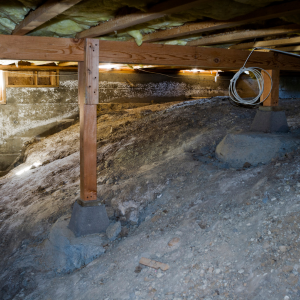
Warranties are crucial when choosing a foundation repair company:
- Coverage: A warranty means future problems will be fixed without more costs.
- Long-Term Assurance: A good warranty shows the company’s confidence in their repairs and offers peace of mind.
- Commitment: Companies offering warranties usually care more about customer satisfaction and quality service.
Focusing on these points can help you make a smart choice and pick a contractor to meet your foundation repair needs. For more information on foundation repair solutions provided by Investor Home Buyers, contact us and schedule a consultation.
Enhancing Home Value Through Foundation Improvements
How Does a Strong Foundation Add to Property Value?
A strong foundation is key to keeping and boosting your property’s value. For real estate investors and homeowners, fixing or upgrading the foundation can be a wise choice. It keeps the building stable and makes it more appealing to future buyers. While foundation repair costs vary, upgrading can bring significant benefits. The boost in property value often outweighs the initial cost, as buyers prefer homes with sturdy foundations.
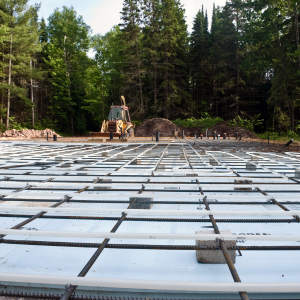
What Long-Term Benefits Come from Investing in Foundation Quality?
Investing in a good foundation has many long-term benefits. A top-quality foundation might come with a lifetime warranty, which means peace of mind and lasting strength over the years. This investment can save money by cutting future maintenance costs and avoiding problems. A strong foundation can also lower property insurance rates since insurers see it as a lower risk. By focusing on foundation quality, homeowners can have fewer repairs and keep their property’s worth steady.
Can Foundation Enhancements Provide Energy Efficiency Gains?
Improving your home’s foundation can also make it more energy efficient. Waterproofing and adding proper insulation can improve thermal performance, leading to major energy savings over time. These changes can lower heating and cooling costs, making it cheaper to own a home. By enhancing your foundation for energy efficiency, the costs of these improvements could be offset by savings on energy bills. A well-insulated foundation supports the home and creates a more comfortable living space.
FAQs:
What is the average cost of building a house foundation in Texas?
The average cost of building a house foundation in Texas ranges from $4,000 to $25,000. It could be higher if you have specific needs for your home.
How does the foundation type affect the cost in Texas?
Different foundation types like slab, pier, and basement vary in price. Slab foundations are usually cheaper, while piers and basements may cost more due to extra structural needs.
How much does foundation repair cost in Texas?
Foundation repair costs depend on the extent of the damage. Minor repairs might cost around $500, but major problems can cost over $10,000. An inspection will help get a precise estimate.
What factors impact the pricing of foundation installation in Texas?
Factors like home size, soil condition, and materials affect installation costs. Features like waterproofing or reinforcement can also raise the price.
Is it necessary to have a foundation inspection before purchasing a home in Texas?
Yes, a foundation inspection is important before buying a home. It helps find potential problems and avoids costly repairs later on, ensuring a wise investment.
How do I choose a reliable contractor for foundation work in Texas?
Find a trustworthy contractor by checking their credentials, experience, and customer reviews. Get written estimates and ensure they are experts in the foundation type you need.
What are the benefits of installing a reinforced concrete foundation?
Reinforced concrete foundations are stable and durable. They are perfect for areas with shifting soil and help prevent common issues like cracks.
How does a monolithic slab’s cost compare to other Texas foundations?
Monolithic slabs are often cheaper because they are simple and quick to install. However, their suitability depends on the soil and the structure’s weight.
Key Insights
- The cost of building a home foundation in Texas varies based on size, type, and complexity. Prices typically range from $15,000 to $30,000.
- Foundation repairs in Texas, such as basement waterproofing and structural reinforcement, are vital to fix uneven settling and prevent damage like cracks or sinking.
- The cost of building foundations includes materials such as poured concrete, block, or steel, and design and engineering impact the overall price.
- For homes in the Dallas-Fort Worth area, regular foundation maintenance and repair are important due to soil conditions. Costs can be estimated per square foot or linear foot for accuracy.
- We recommend regular checks and maintenance to avoid costly replacements, which can be more expensive than minor repairs.
- Foundation methods, like pier foundations or monolithic slab constructions, affect stability and lifespan. Costs also vary in cities like Houston, Austin, and Plano.
- Using online calculators, residential pricing can be estimated by considering factors such as earth excavation and site-specific needs.
- Texas homeowners should work with reputable contractors who offer clear pricing and expert advice on repairs or new installations.
- Other expenses might include underpinning, waterproofing, and drainage solutions, requiring an expert assessment for accurate budgeting and planning.
Keep reading to find out how to sell a house in Texas. This information applies to cities like El Paso, Houston, Dallas, Austin, San Antonio, Fort Worth, and nearby areas. For more help, Contact Us at (214) 253-4544.
Resources To Help You Sell A House in Texas


